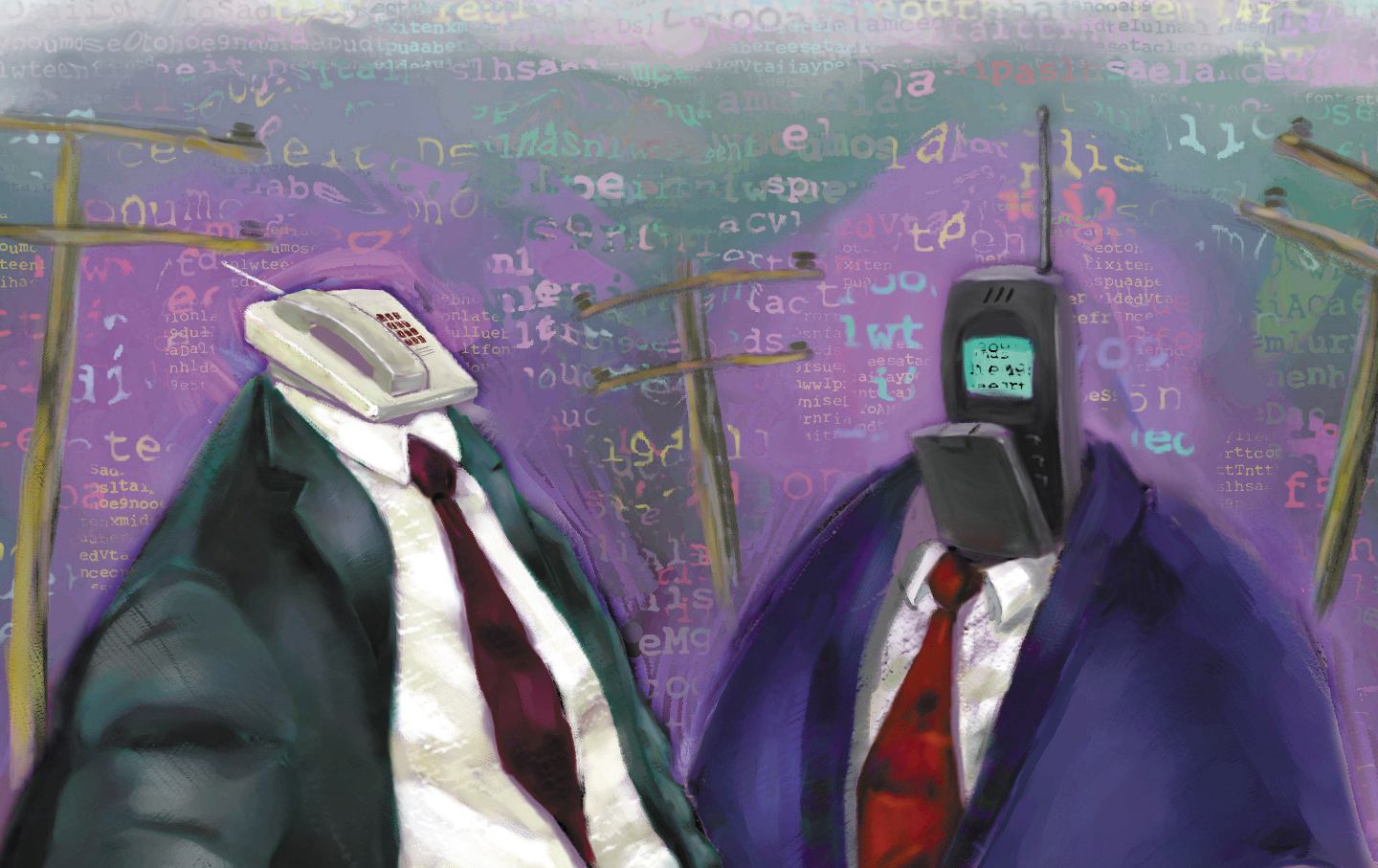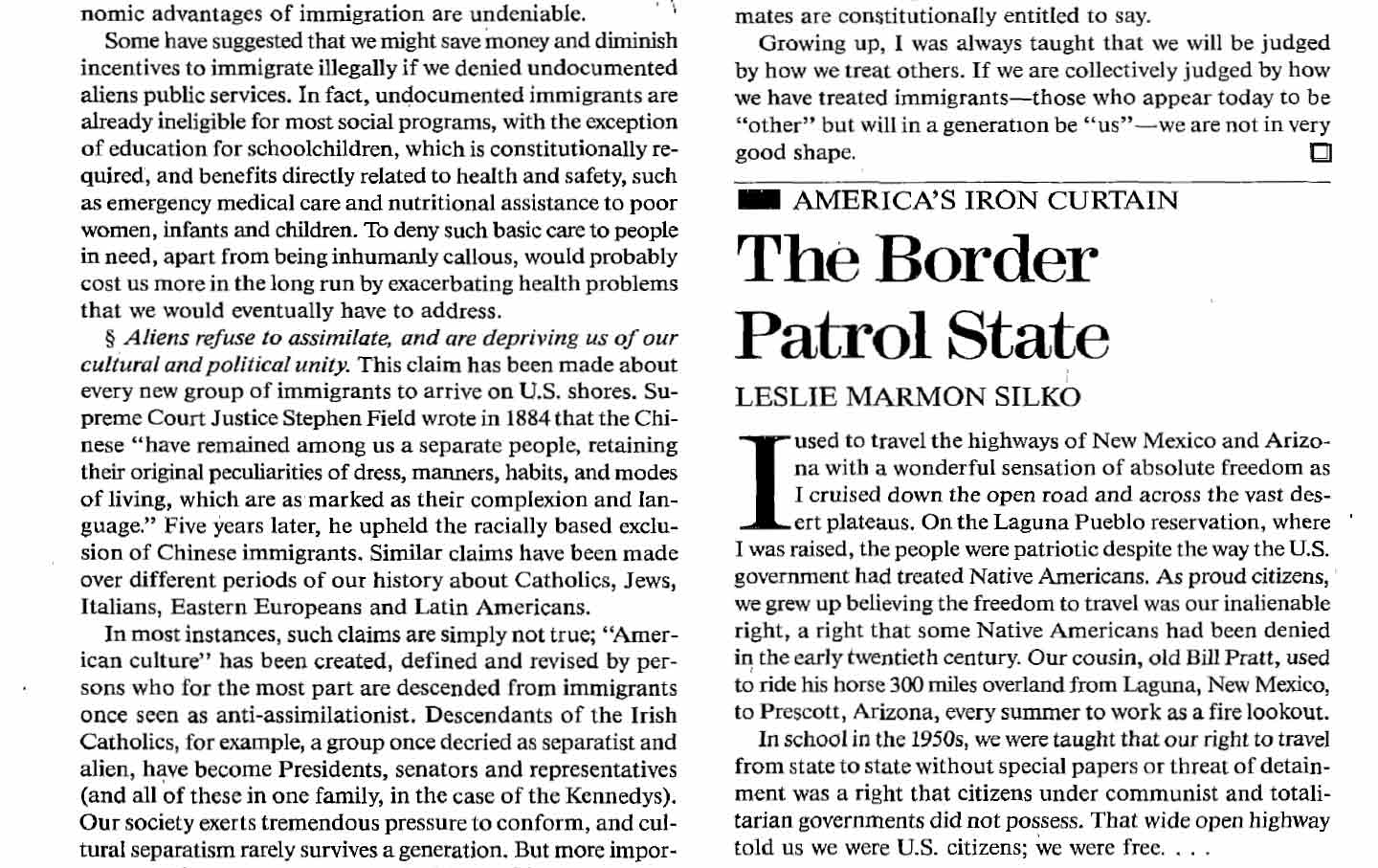The Women of America’s Heartland
Monica Potts’s book The Forgotten Girls is a document of the effects of poverty, sexism, and, of course, the rapacious capitalism that has abandoned communities across America.

Factories closing. small towns shrinking. Violence of all kinds. Teen pregnancy and early motherhood. You’ve probably read your share of articles about the decline of America’s so-called heartland. In 2015, Angus Deaton and Anne Case published an influential study showing that “deaths of despair” from drugs, alcohol, and suicide were rising dramatically among non-college-educated white people. This trend coincided with a sharp decline in life expectancy, especially among middle-aged women. It was a wake-up call for anyone wedded to the idea of women’s steady, if slow, progress toward equality (although, since Dobbs, one wonders how many of those optimistic souls are left).
Academic studies can only take us so far in showing us the complicated textures of lives lived. That’s what makes Monica Potts’s The Forgotten Girls: A Memoir of Friendship and Lost Promise in Rural America so valuable. Growing up in the 1980s and ’90s in Clinton, Ark., Potts witnessed her hometown’s slide into despair firsthand. And unlike most reporters and analysts, she paid attention to the girls and women around her. How was she able to escape Clinton while funny, sensitive, supersmart Darci—her childhood best friend, with whom she spent years plotting a fantasy future in exotic Fresno, Calif.—fell into drugs, bad men, too-early childbearing, and petty crime?
Things lined up right for Monica: She was studious, a rule follower, and she saw early on that education could be her path to a bigger life. Money was tight, and her parents were far from perfect—her father, a plumber, was an alcoholic who died in his mid-50s—but they encouraged her to focus on getting into college. Unlike most townspeople, Monica’s mother, Cathy, was a reader, not religious, and ambitious for her three daughters. Darci’s mom, Virginia, a devout Seventh Day Adventist, shared that love of reading but was more passive, her life more chaotic. When Darci went “boy crazy” in middle school, like most girls her age, Virginia pretty much threw up her hands: Darci would make her own “choices.” But choices were in short supply.
From early childhood, women received the message—in Sunday school, church services, and religious social gatherings—that they were meant to be subservient “helpmeets” to men and should limit their aspirations, their education, and their ability to support themselves. If a mate was violent, drunken, irresponsible, it was the woman’s fault, and prayer was the answer. While the church promoted a harsh sexual morality—the ideal was early marriage, followed by babies, ASAP—it sent a mixed message: Premarital sex was sinful, but teens who had babies were revered as mothers. Evangelicalism thus ensured that many women would end up having kids before they were ready, going from one unstable relationship to the next. Thanks to the church’s disempowering teachings, they couldn’t imagine life without a man and couldn’t support themselves and their children on their own. “If you were to place a map of white evangelical Protestants over maps of women dying young and overdosing on drugs and going without jobs,” Potts writes, “they’d line up.”
The malign influence of religion was matched by the negligence of adults. The high school concentrated on the wealthier, athletic kids who stayed out of trouble, pushing out the poorer kids and the ones who needed help. In her senior year, despite her drug use and defiant ways, Darci got good grades, and she was shocked when the principal told her she’d missed too many days of school to graduate. Would it have killed him to tell her she was risking her diploma in time for her to shape up? Would it have killed the guidance counselors to bone up on scholarship aid for colleges they assumed students couldn’t get into or pay for? Monica discovered a Barnard College summer program pretty much by accident, which set her up for a full scholarship to Bryn Mawr and a big-city life in journalism. Meanwhile, her classmates were being steered to local state or community colleges, where they were so bored by the required “basics” and wearied by the demands of commuting and part-time jobs that they dropped out.
Clinton’s girls were left susceptible to predatory men, ubiquitous drug use, and the abstinence-only sex ed that has helped give Arkansas the nation’s highest rate of teen pregnancy. When Monica’s younger sister, driving alone just after she got her license, died in a crash—a common occurrence for Clinton teens—neighbors consoled the family with the thought that “when God wants to call you home, there’s nothing you can do.” Later, Monica realized that “no one ever questioned the wisdom of letting kids drive at such young ages, unsupervised on curvy mountain roads, or wondered if they were drinking and driving and what that meant for the town.” Religious fatalism helps people cope with tragedy, but it also prevents them from working for change.
The Forgotten Girls is a document of the effects of poverty, sexism, male violence, the hollowing out of community, and, of course, the rapacious capitalism that has abandoned communities across America. These contribute to rising mortality from drugs, alcohol, smoking, suicide, and heart disease—not to mention the stress and grief of middle-aged women whose grown children succumb to troubles of their own, leaving grandma to raise the kids.
It was impossible to read the story of the women of Clinton without thinking of the total or near-total abortion bans that have been passed in 17 states and counting; Arkansas was one of the first to ban abortion after Roe was overturned. It’s hard to say what difference that ban makes to the women Potts grew up with—the pattern, she told me, is to have your kids young and then get a tubal ligation. However, she added, “the abortion ban will make more women lead lives like the women I write about. More women who don’t have choices.”
More forgotten girls who become forgotten women? Is that really the country we want?
Disobey authoritarians, support The Nation
Over the past year you’ve read Nation writers like Elie Mystal, Kaveh Akbar, John Nichols, Joan Walsh, Bryce Covert, Dave Zirin, Jeet Heer, Michael T. Klare, Katha Pollitt, Amy Littlefield, Gregg Gonsalves, and Sasha Abramsky take on the Trump family’s corruption, set the record straight about Robert F. Kennedy Jr.’s catastrophic Make America Healthy Again movement, survey the fallout and human cost of the DOGE wrecking ball, anticipate the Supreme Court’s dangerous antidemocratic rulings, and amplify successful tactics of resistance on the streets and in Congress.
We publish these stories because when members of our communities are being abducted, household debt is climbing, and AI data centers are causing water and electricity shortages, we have a duty as journalists to do all we can to inform the public.
In 2026, our aim is to do more than ever before—but we need your support to make that happen.
Through December 31, a generous donor will match all donations up to $75,000. That means that your contribution will be doubled, dollar for dollar. If we hit the full match, we’ll be starting 2026 with $150,000 to invest in the stories that impact real people’s lives—the kinds of stories that billionaire-owned, corporate-backed outlets aren’t covering.
With your support, our team will publish major stories that the president and his allies won’t want you to read. We’ll cover the emerging military-tech industrial complex and matters of war, peace, and surveillance, as well as the affordability crisis, hunger, housing, healthcare, the environment, attacks on reproductive rights, and much more. At the same time, we’ll imagine alternatives to Trumpian rule and uplift efforts to create a better world, here and now.
While your gift has twice the impact, I’m asking you to support The Nation with a donation today. You’ll empower the journalists, editors, and fact-checkers best equipped to hold this authoritarian administration to account.
I hope you won’t miss this moment—donate to The Nation today.
Onward,
Katrina vanden Heuvel
Editor and publisher, The Nation








